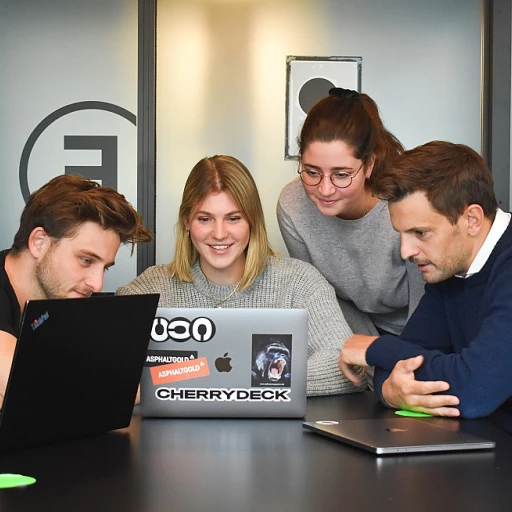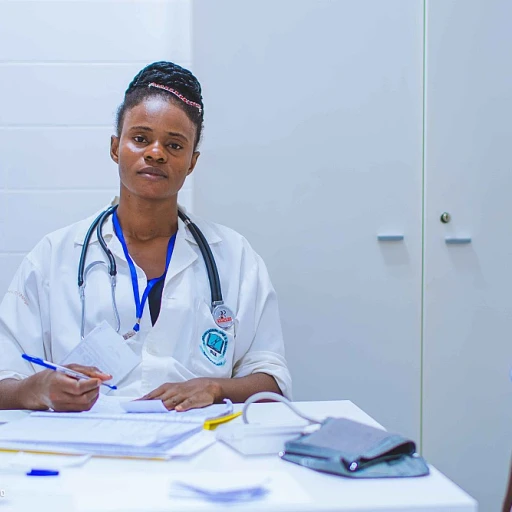
The Dreyfus and Dreyfus Skill Acquisition Model Explained
Unveiling the Foundation of Skill Development
The Dreyfus and Dreyfus Skill Acquisition Model stands as a pivotal paradigm in understanding how individuals progress through distinct stages of expertise acquisition. Initially introduced in academia, this model offers a structured framework that is instrumental in comprehending the journey from novice to expert in various professions, including HR leadership. Central to the model's appeal is its delineation of five sequential stages: novice, advanced beginner, competent, proficient, and expert. This stage model highlights the evolution of skills as practitioners gain more experience and knowledge in their respective fields. In the context-free novice stage, individuals begin their learning process by adhering to strict rules and procedures, which guides their decision-making and problem-solving skills. This phase, though foundational, is often seen as restrictive due to its reliance on rote learning rather than clinical reasoning or nuanced understanding. For professionals aspiring to excel in human resources, understanding the nuances of these stages can significantly aid in both personal and career development. It offers a lens through which one can better grasp the necessity of evolving beyond basic compliance to a stage where skills become intuitive and expert-level decision-making is second nature. Particularly relevant is the concept of learning in context, emphasized in the Dreyfus model. As one navigates from novice to more advanced stages, context becomes crucial. The ability to adapt skills to varying situations becomes more pronounced, reminiscent of nursing practice where clinical skills evolve with experience. The utility of the Dreyfus model in HR underscores the importance of continuous skill development. Incorporating elements from nursing and clinical practice, where the model has been extensively applied, can enrich the HR professional's journey. To delve deeper into the role of a CHRO in boosting skills development, you can explore more here.Navigating the Novice Stage in HR Leadership
Transitioning into the Initial Stages of HR Leadership
The journey through the novice stages of a Chief Human Resources Officer (CHRO) career is crucial for establishing a strong foundation in leadership. In this critical phase, understanding the key elements of the Dreyfus and Dreyfus Skill Acquisition Model becomes invaluable. This model outlines how beginners navigate through context-free rules and basic procedures, often relying on theoretical knowledge without the benefit of extensive experience. At this stage, individuals new to HR leadership grapple with integrating academic learning into practical scenarios. Drawing on theoretical frameworks learned from diverse fields, such as nursing practice and clinical reasoning, these burgeoning leaders apply basic problem-solving techniques to manage HR functions. It's a learning process marked by stages that represent increasing levels of skill acquisition and decision-making prowess. While navigating this stage, the importance of learning from real-world exposure cannot be overstated. Scholarly inputs and expert guidance play a pivotal role in the initial development of their professional identity. Comments from nursing experts, who transition from abstract knowledge to practical application, can guide novice leaders toward effectively using these new skills in a clinical HR setting. To enhance learning outcomes, tapping into resources like the "Agility Writer Power-Up Guide" can significantly accelerate the acquisition of knowledge. These resources offer strategic advice, drawing parallels between skill development and clinical practice, to jumpstart a novice’s path to proficiency. This developmental stage is not only about acquiring technical HR skills but also introducing a mindset shift. Leaders mature into thoughtful, adaptable professionals, charting their trajectories from novice to competent HR practitioners with an eye on further stages of the model. Here, the collaboration of robust academic insights and practical experience is integral in fostering a transformative learning experience.From Advanced Beginner to Competent: Building HR Expertise
Transitioning from Advanced Beginner to Competent in HR
In the journey of skill acquisition, moving from an advanced beginner to a competent professional in human resources is a significant milestone. This stage, as outlined in the Dreyfus model, involves a deeper understanding of the context-free rules and procedures that govern HR practices. At this level, individuals start to develop the ability to apply their knowledge and skills in more complex situations, enhancing their problem-solving skills and decision-making capabilities.
As HR professionals progress, they begin to integrate their learning experiences into practice, much like the clinical reasoning observed in nursing practice. This involves not just following established rules but also adapting them to fit specific situations. The ability to discern which rules apply in different contexts is crucial, as it allows for more effective problem-solving and decision-making.
According to the Dreyfus model, this stage is characterized by a shift from relying solely on rules to incorporating experience and intuition. HR professionals start to see patterns and anticipate potential issues before they arise, similar to the clinical skills developed by nurses. This level of competence is essential for those aspiring to reach higher levels of expertise in HR.
For those seeking to enhance their skills and advance in their HR careers, understanding the learning process and stages of skill acquisition is vital. Engaging with resources such as exploring the path to becoming a Chief Human Resources Officer can provide valuable insights and guidance.













